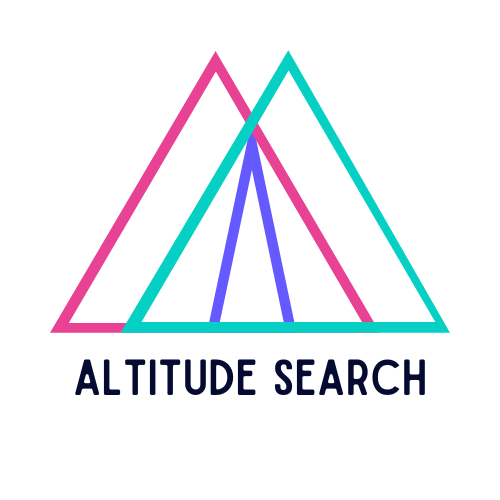
Exploring the Future of Search Marketing: TechWeek Lightning Talk Recap
Estimated reading time: 6 minutes.
On Tuesday, 21st May 2024, I had the privilege of presenting a lightning talk during the Digital Marketing Meetup as part of TechWeek 2024.
The event, held at the Enterprise Precinct and Innovation Campus (EPIC) in Christchurch, gathered digital marketing professionals, enthusiasts, and business owners for an evening of quick-fire talks about the latest trends in the industry. Hosted by Chris Clarke and Titus Cam, this event offered a chance to explore innovative strategies, exchange ideas, and network with other marketers over pizza and drinks.
My talk, titled "The Future of Search Marketing - Search Trends and the Impact of AI," covered three major trends currently shaping the search marketing landscape. I highlighted the rise of AI-powered search, the changing search habits of younger generations, and the declining trust in Google—each presenting new challenges and opportunities for search marketers today.
Key Takeaways:
- Adapting to AI-Powered Search: The rise of AI tools like ChatGPT is changing user expectations, reducing reliance on traditional search engines for top-of-funnel content. Marketers must adjust strategies to maintain visibility, such as creating more engaging, direct, and action-oriented content.
- Optimising for Social Search Platforms: Younger audiences are shifting towards platforms like TikTok, Instagram, and Snapchat for searches, favouring visual, multimedia, and peer-generated content. This requires marketers to focus on short-form videos, influencer collaborations, and content tailored for these platforms' search functionalities.
- Diversifying Search Strategies: The erosion of trust in Google is leading users to explore alternatives like Bing, DuckDuckGo, and AI-driven platforms. To stay relevant, marketers should build trust through transparent and authentic content while optimising for a variety of search tools and platforms.

Table of Contents
- The Rise of AI-Powered Search
- The Changing Search Habits of Digital Natives
- Erosion of Trust in Google
- Adapting to the Future of Search Marketing
The Rise of AI-Powered Search
One of the most significant shifts in the world of search marketing is the rapid rise of AI-powered tools like ChatGPT. While Google has long been synonymous with search, the introduction of AI-driven platforms has changed how users seek information online. Tools like ChatGPT, which gained over a million users in just five days following its launch in 2022, offer direct, conversational responses that often bypass the need to click through to websites.
While Google currently handles an estimated 84 billion monthly searches, ChatGPT, though smaller at around 1.8 billion monthly visitors, has fundamentally altered user expectations. Recent data from YouGov shows that 17% of individuals aged 30 to 44 and 15% of those aged 18 to 29 have used ChatGPT for text generation since January 2023, illustrating a clear shift in behaviour.
AI-powered tools are not only offering instant answers but are also encouraging users to skip the research phase traditionally associated with search engines. This has profound implications for marketers: top-of-funnel content, such as blog posts, FAQs, and other awareness-building materials, may see reduced visibility as users turn to AI for immediate responses.
In New Zealand, we’ve already seen a worrying decline in year-on-year search volume, suggesting that this trend is already having an impact. For search marketers, the challenge is clear: how do we adapt our strategies to account for this shift, ensuring that our brands remain visible and relevant?
The Changing Search Habits of Digital Natives
While AI is transforming search behaviour, another factor reshaping the landscape is the evolving habits of digital natives, particularly Generation Z. This demographic has grown up in a world of instant access to content, and their search preferences reflect this.
In 2022, Google revealed that 40% of young people preferred using TikTok or Instagram for searches such as finding lunch spots, rather than relying on Google or Google Maps. Snapchat is also playing a significant role, with 45% of Gen Z users choosing it for local search queries.
These statistics highlight a shift from traditional search engines to social platforms, where users can find content generated by peers, influencers, and brands they trust. This peer-generated content often feels more authentic to younger users, aligning better with their preferences for visual and multimedia content.
Platforms like TikTok and Instagram are leveraging AI to enhance their search functions, making it easier for users to discover relevant content within the app. Meta, which owns Facebook, Instagram, and WhatsApp, has also launched AI answers within its apps, enabling users to enter search queries and receive results without leaving the platform. Meta's 16.02 billion monthly visitors on Facebook and 6.85 billion on Instagram represent an enormous opportunity for marketers willing to adapt their strategies to this shift.
For search marketers, the implications are clear: to connect with younger audiences, we must create engaging, multimedia content that is optimised not only for Google but also for platforms like TikTok, Instagram, and Snapchat. This involves a blend of short-form videos, influencer partnerships, and user-generated content—strategies that can help brands stay relevant in a rapidly evolving digital landscape.
Erosion of Trust in Google
The final point of my talk focused on the erosion of trust in Google, a development that has far-reaching implications for marketers. Google’s dominance in the search market has been unparalleled, maintaining around 90% of global market share for nearly two decades. However, recent events, such as the ongoing antitrust trial in the United States, have cast doubt on Google’s practices and priorities. The revelations from the trial have led to a growing sense of dissatisfaction among advertisers and users, who feel that Google’s focus on profit often comes at the expense of user experience.
This erosion of trust is not limited to advertisers. Everyday users have also voiced concerns about the quality of Google’s search results, which have been perceived as declining over the past two years. Algorithm updates and the introduction of AI-driven overviews have created frustration for many users, who find the results less relevant to their queries. As a result, users are increasingly turning to alternative search engines like Bing, DuckDuckGo, and new AI-driven platforms such as Perplexity AI, which served over 500 million search queries in 2023 and now sees over 50 million monthly visits.
Bing has recently surpassed 10% of the global search market share, while DuckDuckGo has become the second most popular mobile search engine in the United States, handling an average of 3 billion monthly search queries. This diversification of search behaviour is not a passing trend but a clear signal that users are actively seeking alternatives to Google.
Adapting to the Future of Search Marketing
The evolving search landscape presents both challenges and opportunities for marketers. To stay ahead, we must diversify our strategies to ensure that our brands are discoverable across a broader range of platforms and search tools. This involves embracing AI-powered search, integrating multimedia content, and optimising for social platforms like TikTok, Instagram, and Facebook.
Additionally, building trust with users will be more important than ever. With users increasingly sceptical of Google’s search results, transparency and authenticity in content will be key to maintaining engagement. By understanding and adapting to these shifts, search marketers can continue to connect with their audiences effectively and drive meaningful results.
The search landscape in 2025 will likely look very different from that of 2023, and the time to act is now. By embracing change and diversifying our approaches, we can navigate this dynamic field and ensure that our brands remain visible, relevant, and trusted.

